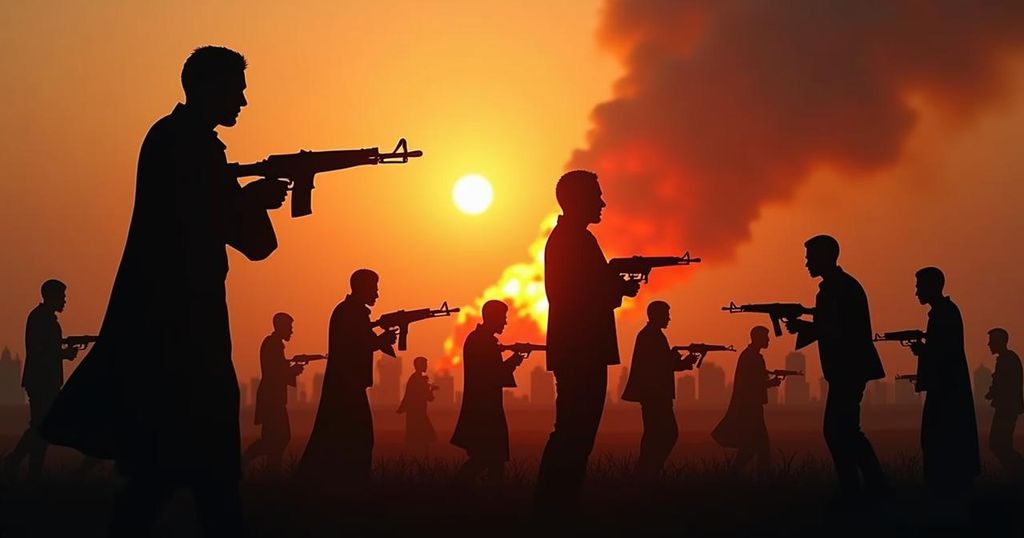Following the IRGC’s missile attack on Israel, thousands of Iranians celebrated in the streets, encouraged by the government. While many responded with jubilation, others expressed significant concern over the potential for escalating conflict, particularly given the heavy civilian casualties from Israeli actions in neighboring regions. Humor emerged as a coping strategy on social media, reflecting both fear and satirical commentary on the ongoing conflict. Some Iranians also expressed support for Israel, prompting a warning from Iranian authorities against dissenting views.
The recent ballistic missile attack by the Islamic Revolutionary Guard Corps (IRGC) on Israel has provoked a varied response among Iranians. Following the attack, significant numbers of citizens took to the streets in celebration, as state-sponsored rallies illuminated the night sky with fireworks and patriotic songs. State television broadcasted the celebratory mood live, featuring anchors who expressed enthusiasm for the missiles striking Israel. One such anchor, Amirhossein Tahmasebi, made light of the destruction by calling for artists to capture the moments of impact as if they were great works of art, further illustrating the surreal blend of jubilation and violence amidst the ongoing conflict. Despite the celebratory atmosphere, some Iranians expressed deep concern for the potential ramifications of such military actions. Many are fearful of escalating conflict with Israel, given the continuing violence across the region. A female resident of Tehran shared her anxiety, noting that her family considered fleeing the city due to escalating threats and the devastation already inflicted upon civilians in neighboring Lebanon and the Gaza Strip. Compounding these worries is Israel’s history of retaliatory strikes, which continues to loom large in public consciousness. Prime Minister Benjamin Netanyahu’s communications with the Iranian populace highlight this tension; he asserts that Israelis might target any location in Iran if provoked. As a response to such threats, Iranians have turned to humor on social media, creating jokes that reflect their fears of an imminent war while also highlighting the absurdity of life in a conflict-prone region. In this context, discontent with the Iranian government has surfaced alongside public displays of loyalty towards Hezbollah and supportive reactions regarding the missile strike. Some individuals have even expressed support for Israel online, prompting the IRGC’s intelligence division to call for vigilance against any such sentiments in cyberspace.
The ongoing tensions between Iran and Israel have a long history, deeply rooted in geopolitical conflicts and ideological differences. Iran’s support for Hezbollah and its opposition to Israeli policies in the region play a significant role in the animosity between the two nations. The Islamic Revolutionary Guard Corps, a key military and ideological force within Iran, has been vocal in its stance against Israel, often promising retaliation for perceived aggressions. Recent events, including Israel’s military actions in Lebanon and Gaza, have heightened these tensions, leading to fears of wider conflict. The public response in Iran to military actions often varies, reflecting a spectrum of emotions ranging from nationalistic pride to fear of war.
In conclusion, the missile attack on Israel has elicited mixed reactions among Iranians, highlighting both a sense of national pride and deep-rooted anxieties regarding potential retaliation. The celebratory gatherings, encouraged by the Iranian government, stand in stark contrast to the fears expressed by many civilians about impending war. Furthermore, the juxtaposition of humor as a coping mechanism amidst anxiety about conflict underscores the complexities of Iranian public sentiment in the face of escalating military tensions. As the situation unfolds, the balance between celebratory nationalism and the fear of war remains precarious, ultimately shaping public discourse in Iran.
Original Source: www.aljazeera.com






